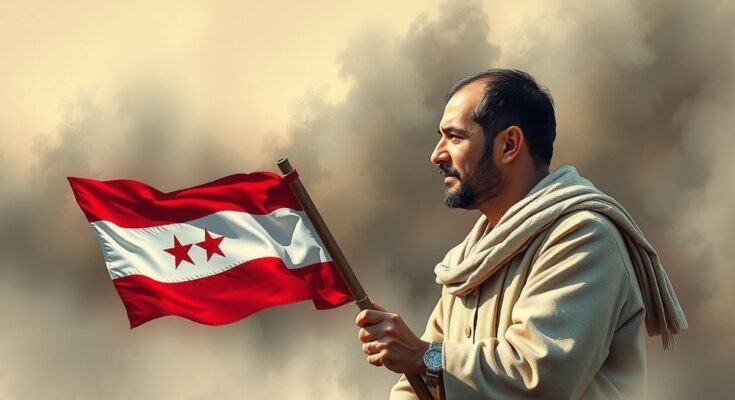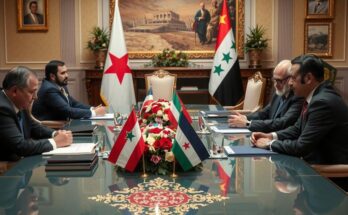King Abdullah II of Jordan advocates for a peaceful and inclusive political transition in Syria during a meeting with the Arab Ministerial Contact Committee. He emphasizes respect for Syrian choices, the need for a unified international stance, continued humanitarian aid, and collaboration to combat terrorism, reinforcing Jordan’s commitment to regional stability and peace.
His Majesty King Abdullah II of Jordan recently engaged with a delegation from the Arab Ministerial Contact Committee on Syria, alongside various foreign ministers and representatives from international organizations participating in the Aqaba Meetings on Syria. During this important meeting, the King underscored the necessity for a peaceful and inclusive political transition in Syria, which encompasses the diverse political and social factions within the country, and enjoys support from the United Nations and the Arab League.
The King affirmed that Syria’s stability is a strategic imperative for the Arab nations and highlighted Jordan’s commitment to respecting the choices of the Syrian people. Moreover, he reiterated the importance of strengthening collaborative efforts to combat terrorism, which poses significant threats to both Syria’s internal security and the broader regional and global landscape.
Furthermore, King Abdullah emphasized Jordan’s continued humanitarian assistance to the Syrian population, advocating for the establishment of conditions conducive to the voluntary repatriation of refugees. His royal statement also called for a unified international approach to safeguard Syria’s sovereignty and territorial integrity, stressing the unity of the Syrian people as vital for the establishment of a free and secure Syria.
The discussions also covered other regional issues, including the need for comprehensive peace in the Middle East, which involves resolving conflicts in Gaza, addressing unilateral Israeli actions in the West Bank, and ensuring the stability of ceasefires in Lebanon. The meeting enlisted participation from key figures across the region, embodying a collaborative effort towards realizing lasting peace and security in Syria and its neighboring nations.
The ongoing conflict in Syria has resulted in significant geopolitical implications, affecting not only the nation itself but also the stability of the broader region. Jordan, sharing a border with Syria, is particularly invested in efforts to promote stability and humanitarian assistance to mitigate the refugee crisis resulting from the ongoing violence. The calls for a peaceful political transition reflect a broader consensus among Arab nations and international stakeholders on the need for an inclusive approach to governance that embodies the aspirations of all Syrian citizens, thereby promoting long-term peace and reconciliation.
In conclusion, His Majesty King Abdullah II’s remarks during the Aqaba Meetings underscore Jordan’s commitment to fostering a peaceful, inclusive political transition in Syria that accounts for the perspectives of diverse political and social groups. His emphasis on unifying efforts to counter terrorism and humanitarian cooperation highlights Jordan’s strategic role in regional stability. The discussions further attested to the necessity of addressing underlying conflicts in the Middle East to achieve broader, lasting peace.
Original Source: jordantimes.com




